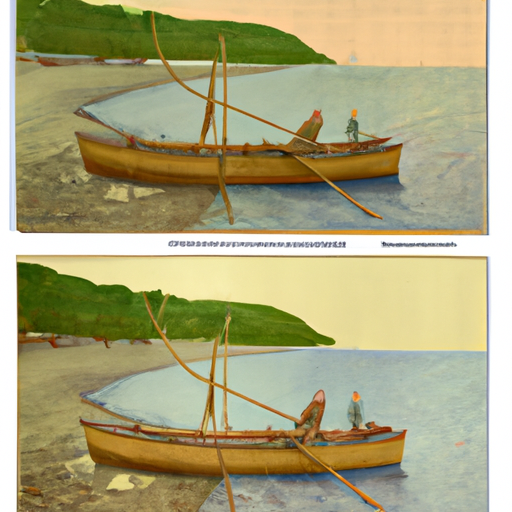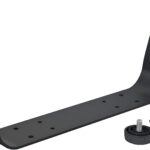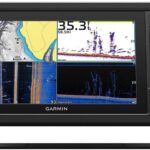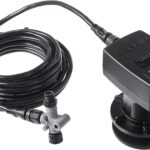Your love of fishing is about to launch on a thrilling journey as we navigate the compelling contrasts between freshwater and saltwater fishing techniques right here in the “Differences in Fishing Techniques for Freshwater vs. Saltwater Environments”. You might be an avid angler, or simply an enthusiast, but irrespective of your knowledge level, you’ll find intriguing facts that may redefine your perspective on these two popular fishing environments. Prepare to immerse yourself in revealing comparisons and be inspired to expand your angling skills.
Understanding the Environments
Fishing is a vast field that requires proper understanding of the environment, be it freshwater or saltwater. Before diving into the depth of fishing techniques, let’s first understand the unique characteristics of both types of environments and how they inspire the behaviors and survival of fish species.
Characteristics of Freshwater Environments
Freshwater environments embody rivers, lakes, streams, ponds, and springs. These ecosystems typically have low salt concentrations—usually less than 1%. What you should realize is that every freshwater body has a specific PH level, temperature, dissolved oxygen content, and other ecological characteristics that determine the type of fish species residing in the waters.
Traits of Saltwater Environments
Saltwater environments, in contrast, incorporate oceans and seas. They have high salt concentrations—about 3.5%. The large expanse of saltwater environments supports a large diversity of fish species, each adapted to the varying levels of water depths, temperatures, salinity, and pressure.
How the Environment Influences Fish Behavior
Both freshwater and saltwater environments influence fish behaviors. For instance, most fish have developed incredible adaptations to survive these habitats. In saltwater environments, fish have kidneys that help them eliminate salt, while freshwater fish can absorb salt needed through their gills and skin because of their hypotonic environment. Behavior-wise, the abundance of food, water temperature, and light levels may determine a fish’s feeding patterns.
Similarities and Differences between Freshwater and Saltwater
Freshwater and saltwater ecosystems share some similarities. Both are essential for the survival of different fish species, influencing their behavior and physical characteristics. However, they differ when it comes to salt concentration, with saltwater ecosystems having a higher salt content than freshwater. This difference influences the types of fish you can find in the two environments, fishing gear, techniques used, and even the fishing regulations.
Types of Fish in Each Environment
Understanding the types of fish in each environment isn’t solely about naming species; it’s about recognizing their unique traits that make them suitable for their habitat.
Common Freshwater Fish Species
Freshwater presents a habitat for thousands of fish species, including trout, catfish, largemouth bass, carp, and pike, to name a few. These fish thrive in water with low salt concentration and slightly warm temperatures.
Common Saltwater Fish Species
Saltwater environments, on the other hand, are home to tuna, flounder, cod, marlin, and halibut, among others. These fish species are adapted to handle high salinity levels and cold water temperatures.
Unique Traits of Freshwater and Saltwater Fish
The fish in these two types of water environments have unique traits that make them suitable for such habitats. For instance, most freshwater fish have a thick, slimy coating that protects them from parasites while saltwater fish counteract the high salt concentration by drinking lots of water and eliminating the excess salt.
Equipment Differences between Freshwater and Saltwater Fishing
Your fishing equipment plays a significant role in your ability to reel in a fish. It’s crucial to understand the differences to equip yourself properly.
Comparison of Freshwater and Saltwater Rods
Freshwater fishing rods are typically lighter as they don’t require much power to pull in fish. However, saltwater fishing often requires heavier, sturdier rods to handle larger fish and endure harsh water conditions.
Differences in Fishing Reels
Similarly, freshwater reels are relatively smaller and lighter, designed for precision. Saltwater reels, on the other hand, are engineered for strength and durability to withstand the corrosive saltwater environment and handle robust, larger fish.
Variation in Fishing Lines between the Two
The fishing line’s strength and thickness also vary between freshwater and saltwater fishing. Freshwater fishing calls for a lighter line while saltwater fishing needs a thicker, stronger line due to the larger and more robust fish in the seas.
Fishing Techniques for Freshwater Environments
The fishing technique you employ can make a sizeable difference in your catch. Let’s explore some major techniques used in freshwater fishing.
Baitcasting Technique
The baitcasting technique often involves a specific type of reel designed for precision. It’s widely used for heavier lines and lures and is commonly used for catching larger species.
Fly Fishing Technique
Fly fishing involves casting an almost weightless ‘fly’ to mimic the natural food of the fish. It’s notably used in rivers and streams and can require a lot of practice to master.
Ice Fishing Technique
Ice fishing, as the name suggests, is primarily performed on a frozen water body. It involves drilling a hole through the ice and fishing through it—usually a practice for the brave-hearted and thick-skinned.
Spinning Technique in Freshwater
Spinning technique uses a spinning reel that hangs beneath the rod, providing ease of use and versatility, especially for light lures and baits.
Method Variation depending on Fish Species
Notably, the method you choose might significantly vary depending on the fish species you’re tracking down. Indeed, what works best for catfish might not necessarily work for trout.
Fishing Techniques for Saltwater Environments
Saltwater fishing techniques vary greatly, making it critical to have a discernable understanding of the methodology that works best in the sea or ocean.
Trolling Technique
Trolling is a technique that involves pulling a lure in the water from a moving boat. It’s especially beneficial when tracking down pelagic fish like tuna or marlin.
Bottom Fishing Technique
As the name implies, bottom fishing targets fish species close to the seabed. It entails dropping a weighted bait to the ocean bottom, hoping to entice species like flounder or grouper.
Surf Fishing Technique
Surf fishing involves standing on the shoreline or wading in the surf. It involves casting as far as one can and is advantageous when it’s difficult to access fishing grounds with a boat.
Pier Fishing Technique
Pier fishing is quite popular and involves fishing directly off a pier into the sea. It can be a relaxing method, often employed when fishing for species like mackerel, and sea bass.
Variations depending on Fish Species
Again, your success in saltwater fishing depends on understanding your target species and choosing an appropriate fishing method.
Differences in Fishing Lures and Baits
Fishing lures and baits are pivotal cutleries in the fishing world. However, their usage varies between freshwater and saltwater conditions.
Common Freshwater Lures and Baits
For freshwater fishing, common lures include spinners, jigs, and topwater lures. Live baits such as worms, minnows, and insects also perform efficiently.
Common Saltwater Lures and Baits
In saltwater, popular lures include plugs, spoons, and soft plastic lures. Live baits such as shrimp, shellfish, and small baitfish are prevalent depending on the type of saltwater fish you’re aiming at.
Key Differences and Similarities
The key differences between freshwater and saltwater lures and baits primarily revolve around the fish species’ diet in the two environments. Freshwater fish mainly feed on insects, small amphibians, and other fish, while saltwater fish diet on smaller ocean creatures, including other saltwater fish. The similarity, however, lies with the sole purpose of both: to attract fish.
Understanding Fishing Regulations and Licensing
Regardless of whether your fishing adventures encompass freshwater or saltwater environments, it’s critical to understand relevant regulations and licensing that govern fishing practices to promote sustainable fishing.
Regulations for Freshwater Fishing
These may include rules on the fishing season, bag limits, size limits, and equipment restrictions. These rules aim to conserve and enhance fish populations.
Regulations for Saltwater Fishing
Similar to freshwater fishing, saltwater fishing regulations outline the acceptable species to fish, the fishing season, bag, and size limits. There might also be area closures to help rehabilitate certain marine habitats.
Importance of Fishing Licensing
Fishing licensing helps enforce these regulations, ensuring every angler’s compliance. Plus, the funds obtained from fishing licenses typically contribute to fishery management, habitat development, endangered species programs, and educational outreach.
Challenges in Freshwater vs Saltwater Fishing
Navigating the waters of both freshwater and saltwater fishing brings unique challenges that can affect your fishing experience.
Unique Challenges in Freshwater Fishing
Given the smaller expanse, freshwater tends to have more fishing pressure, leading to wary and hard-to-catch fish. Freshwater fishing also poses the challenge of changing water conditions throughout the year due to weather changes.
Major Challenges in Saltwater Fishing
On a different note, saltwater fishing presents challenges in the form of fighting with large, aggressive fish. Furthermore, saltwater can be corrosive; therefore, your fishing equipment must be resistant to saltwater.
Ways to Overcome these Challenges
Overcoming these challenges involves learning more about the specific fish species, their behaviors, and the environment. Equipment maintenance also proves imperative in surviving the challenges of both freshwater and saltwater fishing.
Safety Tips for Freshwater and Saltwater Fishing
Like any other outdoor activity, safety reigns paramount in fishing. Here are some general and specific tips for both fishing environments.
General Safety Tips
Regardless of the environment, consider checking weather conditions before fishing, wear a life jacket, and always inform someone about your fishing trip. Also, be aware of local wildlife and pack a basic first aid kit for emergencies.
Specific Safety Tips for Freshwater Fishing
When fishing in freshwater locations, watch out for poisonous plants, insects, and slippery riverbanks. Also, be careful when navigating small boats or canoes on rivers or lakes.
Specific Safety Tips for Saltwater Fishing
For saltwater fishing, safeguard yourself from rapid tides and waves. Besides, iconsider using a marker buoy to signal your position, especially when fishing in deep waters.
Preserving and Cleaning your Catch
After landing your catch, the next focus should be on preserving and cleaning the fish to ensure its quality and taste.
Freshwater Fish Preservation and Cleaning
Freshwater fish should be cleaned soon after they are caught. This involves scaling, gutting, and rinsing the fish. To preserve your catch, consider keeping it on ice until you’re ready to cook or freeze it.
Saltwater Fish Preservation and Cleaning
Much like freshwater fish, saltwater fish should also be cleaned soon after being caught. Preservation can be done through icing, refrigeration, or freezing, depending on when you intend to cook it.
Significance of Proper Preservation Methods
Proper preservation methods are essential to ensure you maintain the quality of your catch, elevate its flavors, prevent spoiling, and avoid foodborne illnesses. As a rule of thumb, the fresher the fish, the better the taste.










